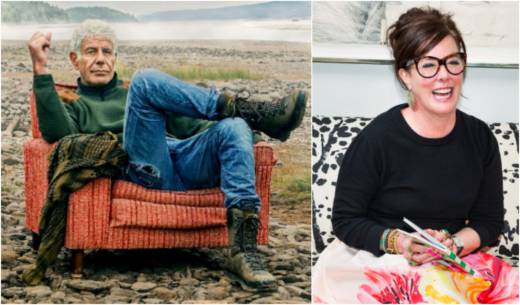It happens every time another celebrity dies by suicide. Social media explodes with sympathy and expressions of grief, alongside pleas for those suffering with depression to speak up and seek help. The Suicide Prevention Lifeline phone number is widely distributed for a week or so. These well-intentioned gestures often spring from a genuine need to feel like we can, in some way, help those who are struggling and stop this from happening again.
The problem with these social media explosions though, is that they can, in their ubiquitousness, leave the overwhelming impression that people are taking their own lives simply because they have not spoken up or sought outside help, that those struggling with emotional and mental health are not being proactive enough in trying to get well.
Dr. Jane Goldberg, an author and psychoanalyst with over four decades of experience in treating patients in both private practice and group therapy, says, "Many, if not most who have [died by] suicide have a history of looking for help. There are myriad reasons why suicidal impulses are not treated more effectively. But, it is usually not because the person hasn’t tried to get help. Chronic, clinical or even acute depression is immense; it is debilitatingly painful; it takes over one’s life. It becomes impossible to see any light at the end of the tunnel."
In fact, the celebrities we have recently lost to suicide often displayed a great deal of self-awareness about their own conditions before they died, and had clearly worked hard at getting a handle on them.
Five months before his death in 2017, Chester Bennington told Tech 360 HD:
"I know that for me... when I’m in my own head… this skull between my ears—that is a bad neighborhood and I should not be in there alone. So when I’m in that, my whole life gets thrown off. If I’m in there, I don’t say nice things to myself. There is another Chester in there that wants to take me down… If I’m not actively getting out of myself and being with other people, being a dad, being a husband, being a bandmate, being a friend, helping someone out… If I’m out of myself, I’m great. If I’m inside all the time... I’m a mess… This is that conscious awareness of that thing. When you can step back and look at something, you’re actually elevating yourself consciously… When I’m not working on that, my life gets messy. Finding the positive in all these things, that’s what we [Linkin Park] always try to do."
Anthony Bourdain's description of his inner struggles, shared by CNN, bears a remarkable similarity to Bennington's. “Something was missing in me," he explained, "whether it was a self-image situation, or whether it was a character flaw, there was some dark genie inside me that I very much hesitate to call a disease.” When Bourdain's daughter was born in 2007, he told People magazine that she gave him a reason to live. In a much-publicized open letter published three days after his death, Rose McGowan wrote, "before Anthony died, he reached out for help.”


